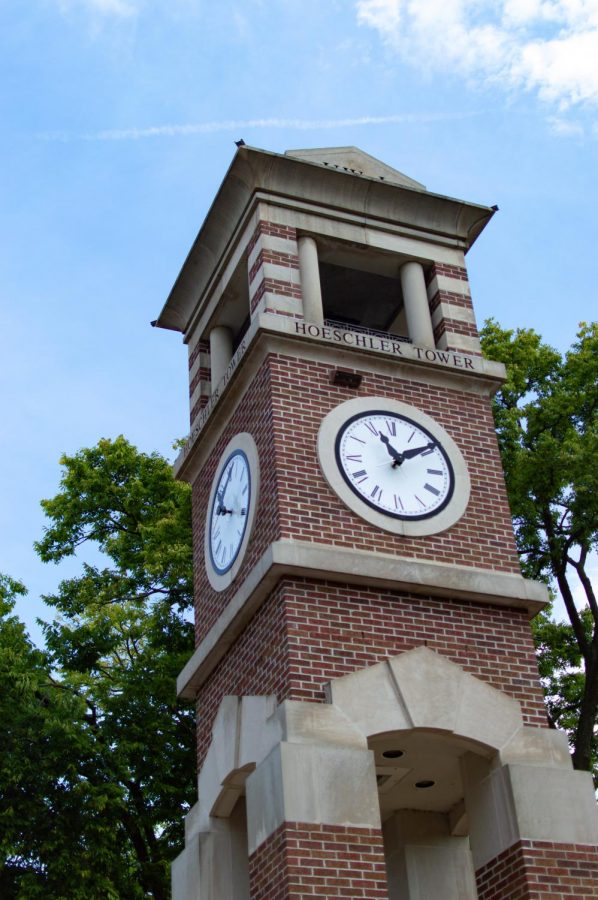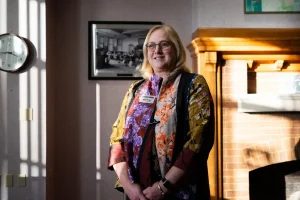Non-traditional students and their experiences in La Crosse
February 4, 2020
According to the National Center for Education Statistics, there are seven factors that help define what a non-traditional student is. A non-traditional student definition may include a student’s race and background, residence, level of employment, non-degree occupational programs, and more.
Most often, they are over 24-years-old and have outside responsibilities; such as being a parent or having a full-time job.
In a 2018 article in The Hechinger Report, it showed that the number of traditionally aged students will slightly decline by the year 2025, which could be as much as 15 percent for the state of Wisconsin.
Enilda Delgado, professor of sociology and criminal justice at University of Wisconsin – La Crosse, shares that due to the 2008 recession there was a decline in birth rates.
“The university has to make a decision as to what its priorities are in terms of non-traditional students and I’m not sure that priority has been put there, and if we put our emphasis there with the change in demographics of the state and the region that there might be a need to look a little bit deeper where we can get students [non-traditional] to come in,” said Delgado.
One student who lives the experience of a non-traditional student is Joseph Carrillo, who returned to college in 2015, working full-time and attending classes full-time. Joseph will be receiving his bachelor’s degree in communication studies and a minor in leadership development this coming May. His senior capstone project for communication studies will be centered on non-traditional students and how they identify themselves within their different communities.
Between a full–time job in management at festival foods and full-time enrollment at UWL, Joseph also volunteers for La Crosse SOUP, a local community organization, where he was invited to intern after graduation.
Carrillo said, “Giving back, that’s the point, that’s what feels good and that’s why community involvement won’t feel like a job, it’ll feel like I get to go to work and do something that I enjoy for the remainder of my corporate career.”
Carillo claims that the key to managing both school and work is to stay organized. He schedules his time on a whiteboard at home so he knows exactly what he will be doing at any given time of the day.
Carillo said, “Sharing ideas with students that are significantly younger than you, it’s interesting what they have to say, but at the same time, their schedules are pretty much available. They, [the students] know that if they join up with me, they’ll get a good grade because I take this very seriously while having fun.”
There are resources that are available at UWL aimed at promoting higher education to non-traditional students. One is the pre–college program, the self-sufficiency program (SSP), which is an outreach program in the women, gender, and sexuality studies department (WGSS). SSP’s mission is “to extend the availability of higher education to low-income parents by preparing them to be successful college students.”
It is a one to two night 13-week pre-college program at no cost. It has free childcare and they aid in navigating the admissions and financial aid processes. It is offered both fall and spring semester, with a new class beginning on Feb. 25.
Andrea Hansen, the program manager of SSP relies on brochures, word of mouth, and instructors and students who volunteer. Hansen said, “It is never too late to go back to school, and I am here to help through the process.”
SSP works alongside two other area colleges, Western Technical College, and Viterbo University. Freshman and non-traditional student, Amanda Hellerud, is currently enrolled in the nursing program at Western Technical College.
Returning to school after 17 years, Amanda says she feels, “rusty” in the classroom. “I feel exhausted sometimes, between work and school, and 4 boys, I wonder if I will make it. I do my studying when my kids are asleep, the thing that keeps me going is, aside from coffee, is knowing at the end of this, I will be a nurse. I am one step closer every day,” said Hellerud.






